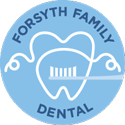TREATMENT & POST-OP INFORMATION
Care of the Mouth Following Extractions or Surgery
- To control bleeding keep pressure on the gauze sponge placed over the extraction site for at least 30 minutes. If bleeding continues, roll up another sponge, moisten it and hold firm pressure for an additional 30 minutes. If this does not control the bleeding, call me. NOTE: Often there is a slight oozing of blood which when mixed with saliva, appears to be excessive bleeding. DO NOT BE ALARMED.
- Do not rinse the mouth and avoid spitting on the day of surgery as this may prolong bleeding. Gentle rinsing with warm salt water (1 teaspoon salt in a glass of warm water) should begin the day following surgery. Brush your remaining teeth regularly and the teeth around the extraction site as soon as possible. Cleanliness is essential to optimal healing.
- Avoid hot liquids the first few hours following surgery. Be sure to keep up your intake of other fluids. Soft foods are recommended for the first 24 hours. Vitamin supplements (Vitamin C especially) promote healing.
- Eliminate smoking or keep it to a minimum for the first 24 hours.
- Some swelling may occur – do not be alarmed. If swelling becomes worse after 24 hours or fever occurs, call me.
- Do not engage in any vigorous activity the first day of the surgery.
- You may want to take an over-the-counter pain reliever before the numbing wears off and for 2-3 days after the procedure. Three (3) 200 mg. Ibuprofen every 6 hours is an excellent choice if you are not allergic or sensitive to Ibuprofen.
- If you have been given a prescription for pain medication, then you may want to take that medication for the first day and switch to the over-the-counter medication as soon as possible.
- If you have any problems or questions – please call me.
Crown & Bridges After Treatment
- Soreness in the injection site and around the tooth or teeth for several days.
- Thermal sensitivity (to cold usually) may occur – after one or two weeks the sensitivity should start to diminish but may last longer if you clench or grind your teeth.
- Your temporary crown(s) or bridge is made out of tooth colored composite. Sticky food will adhere to the chewing surfaces and may dislodge the temporary.
- Flossing around the temporary may dislodge it. Brush around the temporary but refrain from flossing in that area until the permanent restoration(s) is placed.
- The temporary color, texture, shape, etc. has nothing to do with the permanent restoration. The temporary is basically designed to cover the tooth and provide you with a reasonable dental appearance until the permanent restoration is placed.
- You may want to take an over-the-counter pain reliever before the numbing wears off and for 2-3 days after the procedure. Three (3) 200 mg. Ibuprofen every 6 hours is an excellent choice if you are not allergic or sensitive to Ibuprofen.
- PLEASE call us if you have any problems or questions – Thank you for allowing us to help you preserve your oral health.
Tooth Colored Restorations After Treatment
- Soreness in the injection site and around the tooth or teeth for several days.
- Thermal sensitivity (to cold usually) may occur – after one or two weeks the sensitivity should start to diminish but may last longer if you clench or grind your teeth.
- Tooth colored restorations will turn darker over time. Replacement is usually needed, to maintain optimum esthetics, after 5-7 years. The following products tend to stain tooth colored materials and teeth in general. Overuse of these products decrease the ESTHETIC life of the materials:
- Cola Drinks
- Tobacco products
- Tea
- Coffee
- Blueberries and blackberries
- Red Wine
- You may want to take an over-the-counter pain reliever before the numbing wears off and for 2-3 days after the procedure. Three (3) 200 mg. Ibuprofen every 6 hours is an excellent choice if you are not allergic or sensitive to Ibuprofen.
- PLEASE call us if you have any problems or questions – Thank you for allowing us to help you preserve your oral health.
- Be sure to brush and floss around your new restorations – as well as your other teeth – on a daily basis!
